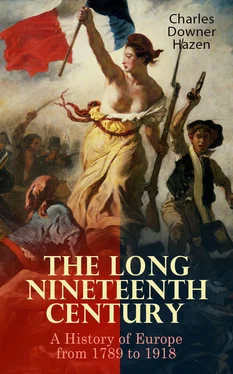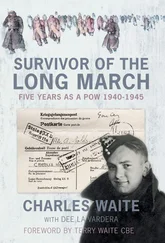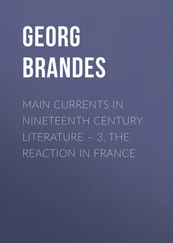He was a man who had risen by his own efforts from poverty to great wealth. He, too, encountered opposition the instant he proposed economies. He took a step which infuriated the members of the court. He published a financial report, showing the income and the expenditures of the state. This had never been done before, secrecy having hitherto prevailed in such matters. The court was indignant that such high mysteries should be revealed to the masses, particularly as the report showed just how much went annually in pensions to the courtiers, as free gifts for which they rendered no services whatever. For such unconscionable audacity Necker was overthrown, the King weakly yielding once more to pressure.
This time the court took no chances, but secured a minister quite according to the heart's desire, in Calonne. No minister of finance could be more agreeable. Calonne's purpose was to please, and please he did, for a while. The wand of Prospero was not more felicitous in its enchantments. The members of the court had only to make their wishes known to have them gratified.
Calonne, a man of charm, of wit, of graceful address, had also a philosophy of the gentle art of spending which was highly appreciated by those about him. A man who wishes to borrow must appear to be rich, and to appear rich he must dazzle by spending freely. Money flowed like water during these halcyon times. In three years, in a time of profound peace, Calonne borrowed nearly $300,000.000.
It seemed too good to be true, and it was, by far. The evil days drew nigh for an accounting. It was found in August, 1786, that the treasury was empty and that there were no more fools willing to loan to the state. It was a rude awakening from a blissful dream. But Calonne now showed, what he had not shown before, some sense. He proposed a general tax which should fall upon the nobles as well as upon the commoners. It was therefore his turn to meet the same opposition from the privileged classes which Turgot and Necker had met. He, too, was balked, and resigned.
His successor, Lomenie de Brienne, encountered a similar fate. As there was nothing to do but to propose new taxes, he proposed them. The parlement of Paris immediately protested and demanded the convocation of the States-General, asserting the far-reaching principle that taxes can only be imposed by those who are to pay them. The King attempted to overawe the parlement, which, in turn, defied the King.
All this, however, was no way to fill an empty treasury. Finally the government yielded and summoned the States-General to meet in Versailles on May 1, 1789. A new chapter, of incalculable possibilities, was opened in the history of France. Necker was recalled to head the ministry, and preparations for the coming meeting were made.
The States-General, or assembly representing the three estates of the realm, the clergy, the nobility, and the commoners, was an old institution in France, but one that had never developed as had the parliament of England. The last meeting, indeed, had been held 175 years before. The institution might have been considered dead. Now, in a great national crisis, it was revived, in the hope that it might pull the state out of the deplorable situation into which the Bourbon monarchy had plunged it. But the States-General was a thoroughly feudal institution and France was tired of feudalism. Its organization no longer conformed to the wishes or needs of the nation. Previously each one of the three estates had had an equal number of delegates, and the delegates of each estate had met separately. It was a three-chambered body, with two of the chambers consisting entirely of the privileged classes. There was objection to this now, since, with two against one, it left the nation exactly where it had been, in the power of the privileged classes. They could veto anything that the third estate alone wanted; they could impose anything they chose upon the third estate, by their vote of two to one. In other words, if organized as hitherto, they could prevent all reform which in any way affected themselves, and yet such reform was an absolute necessity. Consulted on this problem the parlment of Paris pronounced in favor of the customary organization; in other words, itself a privileged body, it stood for privilege. The parlment immediately became as unpopular as it had previously been popular, when opposing the monarch.
Necker, now showing one of his chief characteristics which was to make him impossible as a leader in the new era, half settled the question and left it half unsettled. He, like the King, lacked the power of decision. He was a banker, not a statesman. It was announced that the third estate should have as many members as the two orders combined. Whether the three bodies should still meet and vote separately was not decided, but was left undetermined But of what avail would be the double membership of the third estate- representing more than nine-tenths of the population unless all three met together, unless the vote was by individuals, not by chambers; by head, as the phrase ran, and not by order. In dodging this question Necker was merely showing his own incapacity for strong leadership and was laying up abundant trouble for the immediate future.
The States-General met on May 5, 1789. There were about 1,200 members, of whom over 600 were members of the third estate. In reality, however, that class of the population had a much larger representation as, of the 300 representatives elected by the clergy, over 200 were parish priests or monks, all commoners by origin and, to a considerable extent, in sympathy. Each of the three orders had elected its own members. At the same time the voters, and the vote was nearly universal, were asked to draw up a formal statement of their grievances and of the reforms they favored. Fifty or sixty thousand of these cahiers have come down to us and present a vivid and instructive criticism of the Old Regime, and a statement of the wishes of each order. On certain points there was practical unanimity on the part of clergy, nobles, and commoners. All ascribed the ills from which the country suffered to arbitrary, uncontrolled government, all talked of the necessity of confining the government within just limits by establishing a constitution which should define the rights the the king and of the people, and which should henceforth be binding upon all. Such a constitution must guarantee individual liberty, the right to think and speak and write, henceforth no lettres de cachet nor censorship. In the future the States-General should meet regularly at stated times, and should share the law-making power and alone should vote the taxes, and taxes should henceforth be paid by all. The clergy and nobility almost unanimously agreed in their cahiers to relinquish their exemptions, for which they had fought so resolutely only two years before. On the other hand, the third estate was willing to see the continuance of the nobility with its rights and honors. The third estate demanded the suppression of feudal dues. There was in their cahiers no hint of a desire for a violent revolution. They all expressed a deep affection for the King, gratitude for his summoning of the States-General, faith that the worst was over, that now, in a union of all hearts, a way would easily be discovered out of the unhappy plight in which the nation found itself.
An immense wave of hopefulness swept over the land. This optimism was based on the fact that the King, when consenting to call the States-General, had at the same time announced his acceptance of several important reforms, such as the periodical meeting of the States-General, its control of the national finances, and guarantees for the freedom of the individual. But the King's chief characteristic, as we have seen, was his feebleness of will, his vacillation. And from the day the deputies arrived in Versailles to the day of his violent overthrow this was a fatal factor in the history of the times. In his speech opening the States- General on May 5, the King said not a word about the thought that was in every one's mind, the making of a constitution. He merely announced that it had been called together to bring order into the distracted finances of the country. Necker's speech was no more promising. The government, moreover, said nothing about whether the estates should vote by order or by head. The crux of the whole matter lay there, for on the manner of organization and procedure depended entirely the outcome. The government did not come forward with any programme, even in details. It shirked its responsibility and lost its opportunity. A needless but very serious crisis was the result. The public was disappointed and apprehensive. Evidently the recent liberalism of the King had evaporated or he was under a pressure which he had no strength to withstand. A conflict between the orders began on May 6 which lasted until the end of June and which ended in embittering relations which at the outset had seemed likely to be cordial. Should the voting be by order or by member, should the assembly consist of three chambers or of one? The difficulty arose in the need of verifying the credentials of the members. The nobles proceeded to verify as a separate chamber, by a vote of 188 to 47; the clergy did the same, but by a smaller majority, 133 to 114.
Читать дальше












